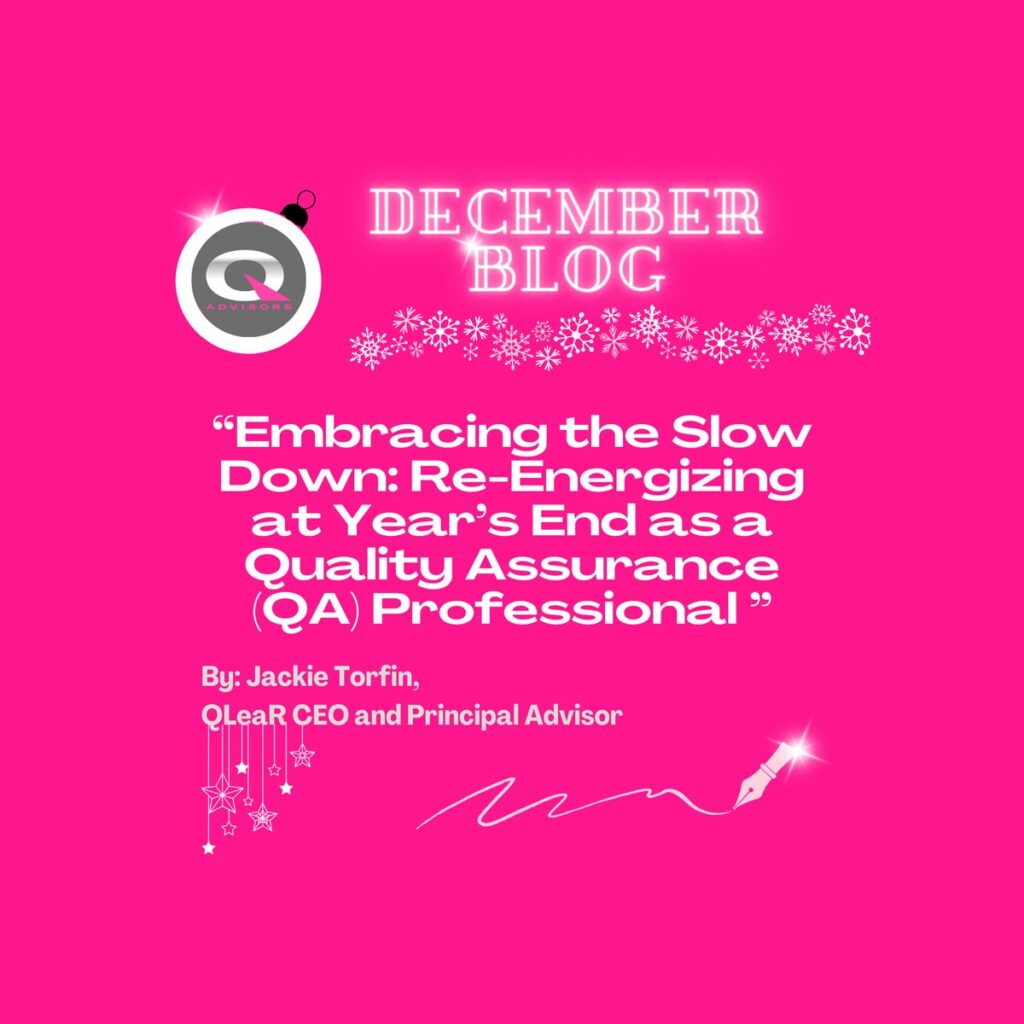As the year winds down, many of us find ourselves swept up in the holiday hustle and the push to meet year-end goals. For QA professionals in the medical devices and pharmaceuticals sectors, this period can be especially intense, filled with deadlines, audits, and the pressing need to ensure compliance with increasingly rigorous standards. Taking the time to re-energize is not just beneficial; it’s essential for maintaining a high standard of compliance and ensuring the safety and efficacy of products that ultimately affect people’s lives.
In QA, where the stakes are high and the demands can be relentless, taking time to slow down can seem counterintuitive. The nature of our work revolves around stringent regulations, quality control, and maintaining safety standards—tasks that can lead to burnout if we don’t give ourselves space to breathe. As we embrace the end of the year, the opportunity arises to reflect on our accomplishments and challenges, evaluate our practices, and recharge our mental and emotional batteries.
The act of slowing down allows for deeper reflection. It gives us a chance to step outside the whirlwind of daily operations and critically assess not just what we achieved in terms of compliance metrics, but why those achievements matter. This kind of positioning can reignite our passion and commitment to quality assurance, reminding us of the crucial impact our work has on patient safety and product efficacy.
The end of the year is also an ideal time to prioritize self-care. This can manifest in various forms: taking time away from the office, engaging in hobbies, or spending quality time with loved ones. Activities that foster relaxation—like exercise, meditation, or yoga—can help to alleviate stress and invigorate your mindset. Engaging in such activities equips us to navigate the complexities of compliance with renewed energy and clarity.
Stepping back can lead to creative thinking. When we allow our minds to rest, we become more open to innovative approaches to problem-solving. Thinking outside the box can lead to improved processes in managing compliance and QA procedures, allowing for increased efficiency and effectiveness in our roles.
Slowing down and re-energizing is not just a boon for personal well-being; it’s also instrumental in enhancing our capabilities as compliance professionals. A renewed sense of purpose can sharpen our focus when we return to work, enabling us to approach challenges with fresh perspectives.
In QA, attention to detail is critical. A well-rested mind is more likely to catch discrepancies that a fatigued brain might miss. This meticulousness not only benefits our current projects but also contributes to fostering a culture of quality and compliance throughout our organizations. The insights gleaned from year-end reflections can inform training programs, compliance measures, and risk assessments, ultimately leading to better outcomes for the organizations we serve.
As compliance professionals, we often operate in environments laden with variability and uncertainty. Slowing down at the year’s end fosters resilience. By allowing ourselves to rest, we build mental and emotional stamina, helping us tackle the inevitable challenges that will arise in the coming year.
It’s also an opportunity to celebrate triumphs—big and small. Acknowledging the hard work that has gone into maintaining quality standards will cultivate a sense of community within teams, reinforcing bonds built on shared goals and mutual respect. This culture of recognition can lead to increased employee satisfaction and lower turnover rates, reinforcing commitment to compliance across the board.
As QA professionals, taking the time to slow down and re-energize at the end of the year is not just beneficial—it’s essential. By prioritizing our well-being, we improve not only our own capacity to perform but also the overall quality of compliance and safety in our industries. So this holiday season, consider taking a step back and investing in your own well-being – it’s a choice that pays dividends for your career and those patients who depend on your work.

